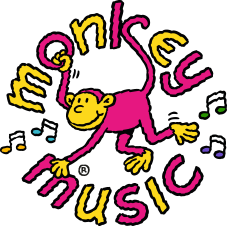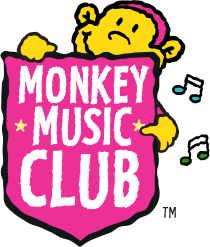Many of my early memories involve making music… family sing-songs at Christmas, sitting up late with my guitar and a friend-in-need, joining in with a crazy young cousins sharing their latest rendition of the No1 hit from Top of The Pops and making lots of different music at music camps during the school holidays... Music hasn’t just been a soundtrack to my life, it has been a focus for sharing precious time with people I care about.
However, as someone who loves to be surrounded by people making music, recently I have been left wondering if we are making less of it with family and friends than we used to. And, in particular, whether infants, young children and their parents are losing out as a result.
While the developmental benefits of singing, dancing and playing along to age-appropriate music are well documented (they include memory, literacy, numeracy, emotional control, coordination, self-confidence and so much more…) with all the entertainment options available, making music with a young child is no longer one of the easier things to do with them.
And counter-intuitive as it may seem, the effortless access to vast libraries of songs that music streaming services offer may exacerbate the issue as it is just so easy to enjoy playlists passively rather than making time to sing, dance and play along with our children. As a result, I suspect, that babies and toddlers are missing out on many of the benefits of music that previous generations thrived on.
At Monkey Music we put a lot of effort into ensuring that our classes provide a nurturing environment where you can relax and share precious time with your child making music. We’ve already spent nearly thirty years and 3 million hours of music classes refining our age-appropriate curricula so that whether your little one is 3 months or 4 years old you can be confident they are benefitting in a plethora of ways from the multitude of benefits music has to offer.
It’s not easy being a young family growing up in such a hectic and pressured world but it might be time to shut out some of the noise to share some music with your child and here are my top tips to help you do that…
Top Tips for Making Music Together
● Don’t be self-conscious about your voice: your child adores you and your voice is the most important sound to them in the world. They won’t care whether you sound like angel or a rusty gate. All they want is to be with you and have fun. So don’t feel self-conscious, just enjoy the moment and go with it!
● Find a time each day to make music together – A 10-minute window is plenty of time to share a musical activity. Making music is hard work for little ones! Try cueing ‘music time’ with a familiar percussion sound (like a tambourine being shaken) or the sound of our Monkey Music orchestra tuning up from one of our class playlists. It will help your child reset from whatever they’re doing into music fun mode.
● Make it interactive: while we adults may enjoy immersing ourselves in music and listening, for babies and toddlers music should generally be interactive. Move to the music and if your child is old enough, dance together. Use small hand-held percussion instruments (these may be real instruments, not toys, so please supervise your children when using them) so your child can experience making different sounds and sensations while joining in. It’s best if they can copy an adult making a similar sound. If you don’t have suitable percussion instruments we have a range of great quality, child friendly ones on our website (https://www.monkeymusic.co.uk/shop) where we also have lots of age-appropriate songs and Monkey Music books with song words, CD’s and music downloads.
● Make it repetitive: young children benefit hugely from repetition (sorry!). Identify your little ones’ favourite songs and repeat them together with the same actions until your little one loses interest or is ready for something more complex or different. However, always keep things simple and repetitive so children can copy the actions and have a go at joining in with simple words.
● Adapt what you do to your child’s age: while continuity and repetition are important, young children develop incredibly quickly and you should think about how to evolve with them. For Monkey Music parents this is as simple as bringing ideas from class back home as we have put a lot of time and resources into making our classes age appropriate.
Sing, Dance, Play the Monkey Music Way
Monkey Music classes started thirty years ago with the ideas of: helping parents share precious time bonding with their babies and young children; showing what fun making music together can be; and helping ensure young children enjoy the incredible and varied developmental benefits music has to offer.
The age-specific classes follow a progressive curriculum meaning the original songs, dances and musical activities have all been created to support the children’s rapidly developing capabilities. Of course, because the carer is supporting their baby or toddler during class, they can learn from the teacher who will explain how the children are learning and use that as inspiration for their play at home. More than that, these early childhood experiences of bonding with their carer and role model in a fun, supportive environment foster an early self-confidence which encourages babies and toddlers to learn and develop skills for later life. In fact, all of Monkey Music’s fun activities, songs and dances are designed to help develop literacy, numeracy, musicality, coordination, balance, early social skills and self-confidence.
Music has been a key foundation of human social bonds for thousands of years. Learning to use our breath and voices to make sounds and wanting to use our bodies to keep a steady beat, either by playing an instrument or dancing is as natural as breathing itself. Let’s make time to enjoy it together and reap all the benefits that music making has to offer.
Posted: 11/04/2023
Back


